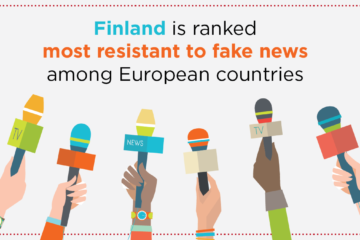Estonia to End Russian Language Schools, All Schools Will Teach in Estonian

Estonia’s Ministry of Education has drafted a new law that would begin the transition to Estonian as the only language of instruction in its schools in 2024. Currently, about 15 percent of Estonian students attend elementary and middle schools using Russian as the language of instruction. Secondary schools teach in Estonian, but many students from Russian-speaking schools aren’t proficient enough in Estonian to be successful at that level. The transition will take place over 8 years. The Ministry also announced that Russian-speaking children will be given an opportunity to learn their first language in separate classes starting in first grade. Minister of Education and Research Tonis Lukas said: “Command of the official language opens all doors in Estonia. We have a common country, a common society even though our mother tongues may be different.” For more, see The Baltic Times.
Scotland Launches a Youth Discussion about the Future of Education
The Scottish Government is inviting all children and young people aged three to 18 to share their “ideas, views and experiences” about schools. This invitation is part of a national discussion about the future of education Minister of Education Shirley-Anne Somerville announced back in June. Youth input will happen through classroom discussions, homework and school projects or discussions outside of school, the results of which can be sent directly to the government through email or social media. This input is being gathered as Scotland creates new education bodies to oversee schools and review its assessments and education qualifications. Teachers, parents and others working in education will also be tapped for their insights. For more see BBC News.

Don’t Scrap “Fair and Equitable Exams” in the Name of Mental Health, Finnish Students Urge

Finland’s Matriculation Exam should not be eliminated in a well-meaning but misguided effort to reduce stress on students, Finland’s Union of Secondary School Students said this week. The Union argued in a statement that the exam, administered to all secondary school students as an alternative to university-based exams, is a “fair and equitable” way to measure whether students have the skills they need to enroll in university. It came in response to a proposal put forward by the Minister of Health and Science to do away with the exam as one strategy for addressing the student mental health crisis. The students argued that while the crisis was urgent, eliminating assessments that students saw as effective and meaningful was not the best way to do it. See YLE for more.
New South Wales Launches Earn-While-You-Learn Teaching Program
New South Wales’s (NSW) newest teacher recruitment initiative will ease the financial burden of becoming a teacher. The NSW Teach for Australia pathway is tailored to meet the needs of mid-career professionals, allowing them to earn their Master of Teaching while being employed in a school. As part of their teacher practicum, participants receive coaching, mentoring, and observe classrooms to improve their practice. The pathway was developed in partnership with Teach for Australia, which currently works with schools in all eight of the country’s states and territories. The first NSW Teach for Australia pathway cohort will be recruited next year and will start working in NSW public schools starting in 2024. Read more about the initiative at the NSW Department of Education.





